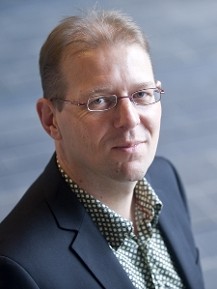
How Interactions between Humanities and Science have Shaped our Knowledge
Påmelding:
Alle som ønsker det kan delta på dette arrangementet, men man må melde seg på. Se nederst på denne siden for påmeldingsskjema.
Påmelding innen torsdag 3. mars 2017
Det blir servering for alle påmeldte etter forelesningen.
Det tas forbehold om at arrangementet kan bli fulltegnet før fristens utløp.
How Interactions between Humanities and Science have Shaped our Knowledge
The idea that the sciences and the humanities are, and have always been, separate is as much alive as ever. It structures the entrenched organization of the university; it is taken for granted in academics' everyday thinking. And yet it is wrong. It fails to fit the practice and the organization of scholarship prior to the 1880s, when Dilthey, Windelband and other leading German thinkers began to call the sciences 'law-establishing' ('nomothetic') as opposed to the allegedly 'idiographic' humanities. It fails likewise to fit what happened in their own time, and what has happened ever since.
In my talk, I will discuss shared practices, methods and epistemic virtues in the humanities and the sciences and I will show how they migrate across disciplines. Thus the formalized method of 19th-century stemmatic philology was transferred to evolutionary biology, from which the field of 'cladistics' emerged, which was transferred back again to philology yielding improved text reconstructions. And the precise historical dating of events by historians was transferred to astronomy, its most famous case being the exact dating of a supernova explosion (in 1054) as reported in a Chinese Song manuscript. These and other interactions suggest that virtues like formalization and precision cross or transcend disciplinary boundaries. In my talk I will put these interactions in the wider frame of past and current thinking about the actual as distinct from the conventionally assumed relationship between the humanities and the sciences.
Rens Bod is professor of Digital Humanities and director of the Center for the History of Humanities and Sciences at the University of Amsterdam. He is the founding editor of the journal "History of Humanities" and the initiator of the conference and book series "The Making of the Humanities". He is an acclaimed author of various books on Digital Humanities and the History of the Humanities. In his most recent work "A New History of the Humanities", he offers an overarching history of the humanities from Antiquity to the present and their relation to the sciences. This book is acclaimed as "an extraordinarily ambitious undertaking ... the first ever history of its kind" and "Bod takes the humanities back to their rightful place in the family tree of science."
***
Dette arrangementet gjennomføres med økonomisk støtte fra N. A. Stangs legat